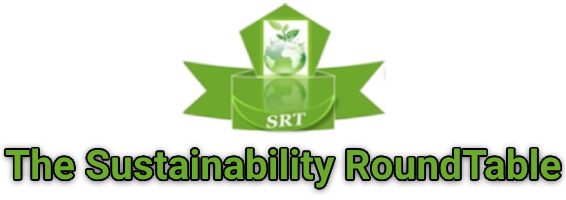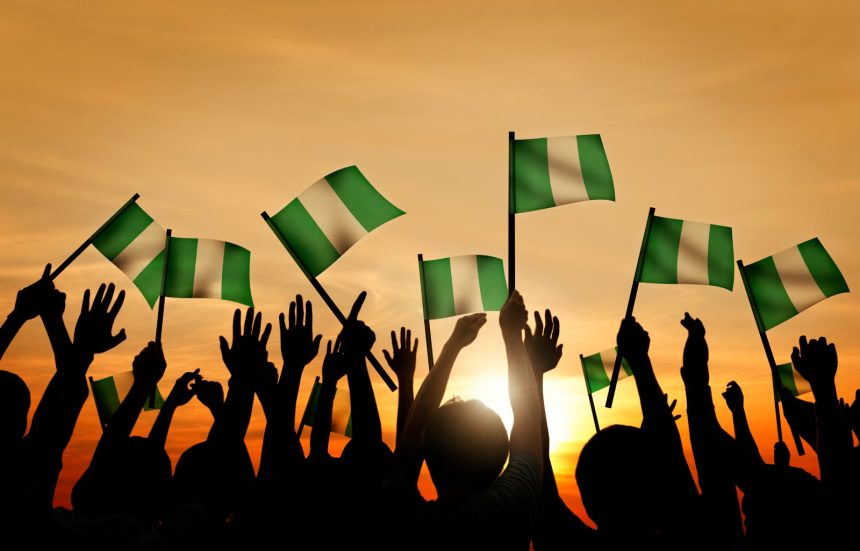The Global ‘Hate Revolution’: Unpacking the Consequences of the ‘Hate Revolution’ on Nigeria and Beyond
By: Eric Adile
In recent years, the world has witnessed the rise of a dangerous phenomenon – the ‘hate revolution.’ This wave of hostility, amplified by social media and digital platforms, has intensified global instability, disinformation, and division. In Nigeria, the impact is especially profound, stoking insecurity, threatening national development, and tarnishing its global reputation. Speaking at the inauguration of the Nigeria Reputation Management Group (NRMG), Prof Jerry Gana has emphasized the devastating effects of the ‘hate revolution’ on Nigeria’s economy, social cohesion, and political stability. He expressed deep concerns over how the ‘hate revolution’ is undermining Nigeria’s development prospects, tarnishing its global image, and repelling much-needed foreign direct investment. He warned that the rise of hate-fueled disinformation, misinformation, and media conspiracy has exacerbated existing social divisions and amplified insecurity, poverty, and instability. This news commentary delves into the negative impact of the hate revolution on Nigeria and the world, drawing on data, expert opinions, and global trends to provide a comprehensive understanding of this alarming issue triggering cross-border conflicts globally, particularly in regions like the Middle East.
The ‘hate revolution’ refers to the growing trend of hostility and aggression in public discourse, particularly online. This toxic environment is fueled by disinformation, misinformation, and manipulated narratives that exploit social divisions along ethnic, religious, and political lines. While hate speech has always existed, its current scale is unprecedented, thanks to the rise of social media and the increasing sophistication of digital tools that spread malicious content.
In Nigeria, hate-driven narratives have been used to pit communities against each other, often exacerbating pre-existing ethnic and religious tensions. According to a 2023 report by The Centre for Information Technology and Development (CITAD), hate speech online increased by over 60% between 2019 and 2023, coinciding with rising political tensions, insecurity, and social unrest. Disinformation and misinformation are at the core of the hate revolution. These malicious narratives spread through traditional media, social media, and interpersonal communication channels, intentionally designed to mislead and incite division. In Nigeria, this manipulation of information has intensified political, religious, and ethnic tensions, creating a toxic environment where falsehoods can thrive unchecked.
Misinformation often spreads quickly on platforms like WhatsApp, Facebook, and Twitter, where fact-checking mechanisms are inadequate. For example, during Nigeria’s 2019 elections, false claims of electoral fraud were shared millions of times, causing widespread suspicion of the election process. This created a climate of distrust that lingered long after the votes were cast, weakening confidence in democratic institutions. As Dr. Ike Neliaku, President/chairman of council of Nigeria Institute of Public Relations, emotionally pointed out, “The hate revolution is fracturing the nation’s very foundation, feeding the narrative that violence and division are our only way forward.” At the heart of the ‘hate revolution’ lies disinformation and misinformation—tools that have been weaponized to spread false narratives, often inflaming ethnic, religious, and political tensions. In Nigeria, a nation with deep-rooted diversity in ethnicity and religion, the manipulation of these fault lines has resulted in significant social, economic, and political consequences.
Nigeria’s reputation on the global stage has long been complicated by issues such as corruption and insecurity, but the rise of hate-fueled narratives is exacerbating these challenges. The NRMG, established to address Nigeria’s tarnished image, shared compelling insights at its recent inauguration, particularly on how the global perception of Nigeria is being shaped by the country’s internal struggles. Hate speech, often exported through media outlets and social platforms, paints a picture of a deeply divided nation. This has severe implications for Nigeria’s ability to attract foreign direct investment (FDI).
A 2023 study by The Economist Intelligence Unit reported that international investors are increasingly wary of Nigeria, citing political instability, social unrest, and insecurity as key deterrents. Nigeria, which once stood as a promising hub for African investment, saw FDI decline by over 40% between 2019 and 2022. This decline coincides with the rise of harmful narratives online that exacerbate the perception of Nigeria as a high-risk investment destination.
Nigeria has long been positioned as a beacon of growth potential within Africa, a nation rich in natural resources and human capital. However, the rise of hate-fueled disinformation has cast a shadow over the country’s developmental progress. Hate speech, particularly in political discourse, has widened societal divisions and stymied efforts to foster national unity and cohesion—key components necessary for sustainable development. The NIPR’s President, Dr. Neliaku, has lamented the growing trend of hateful discourse that has undermined Nigeria’s collective ambition. “We are seeing a new kind of revolution that threatens to tear us apart—a revolution of hate, where misinformation is weaponized to destroy the progress, we have made as a nation,”
The relationship between hate speech and insecurity is direct. In Nigeria, inflammatory rhetoric has contributed to the rise in violent incidents across the country. In the north, disinformation has fueled ethnic tensions between farmers and herders, leading to deadly clashes that have displaced millions. Meanwhile, in the southeast, hate speech has emboldened separatist movements, further destabilizing the region. A 2022 report by The Armed Conflict Location & Event Data Project (ACLED) revealed that hate speech has been a catalyst in over 65% of violent conflicts in Nigeria. These conflicts, often ignited by fake news or divisive rhetoric, escalate into deadly confrontations that security forces struggle to contain. The result is an increasingly fragmented society where insecurity becomes the norm.
The social consequences of this are devastating. Communities that once coexisted peacefully are now divided along ethnic and religious lines, and distrust is becoming the norm. According to UNICEF, nearly two million Nigerians have been displaced due to conflicts exacerbated by hate speech and disinformation. This wave of displacement has created a humanitarian crisis, with children and families bearing the brunt of the instability.
The hate revolution is also undermining Nigeria’s social fabric. Communities that once coexisted peacefully are now at odds, driven apart by narratives that emphasize division. This has a direct impact on the economy, as instability disrupts trade, investment, and business operations. According to the World Bank, the economic cost of Nigeria’s insecurity is staggering, with the country losing an estimated $15 billion annually due to conflicts and violence.
On the political front, hate speech is contributing to the erosion of democratic values. Disinformation campaigns have been used to manipulate elections, undermine public trust in institutions, and sow discord among political parties. The result is a political landscape where polarization is deepening, and governance is becoming increasingly difficult. Nigeria’s image problem is exacerbated by media conspiracy, where certain outlets amplify negative stories while suppressing positive narratives of progress. As a result, the international community is bombarded with a skewed perception of Nigeria—one dominated by corruption, violence, and insecurity. The NRMG aims to address this issue by rebuilding Nigeria’s reputation, but the road ahead is steep.
The Middle East provides a stark example of how hate-driven disinformation can spiral into conflict. The Israeli-Palestinian conflict, for instance, has been intensified by a flood of disinformation on social media platforms. Both sides of the conflict have been accused of spreading manipulated narratives aimed at inflaming tensions and justifying violence. According to a 2022 report by the Brookings Institution, disinformation on platforms like Twitter and Facebook increased by 25% during the height of tensions between Israel and Hamas in 2021, resulting in heightened casualties and deepened divisions. The Syrian civil war, too, has been exacerbated by hate-driven narratives. Extremist groups such as ISIS have mastered the art of using social media to recruit individuals by spreading hate-filled propaganda that radicalizes and mobilizes individuals across borders. The result has been a conflict that has not only destabilized Syria but also led to refugee crises in neighboring countries like Turkey, Lebanon, and Jordan.
At the heart of the global hate revolution is social media platforms, once heralded as tools for democratizing information, are now primary vehicles for the spread of hate. In Nigeria, platforms such as Facebook, Twitter, and WhatsApp have been instrumental in amplifying disinformation, with individuals and groups using these platforms to spread false narratives that incite violence. The lack of effective regulation and oversight allows harmful content to proliferate unchecked. Technological advancements, such as deepfakes and AI-generated content, have made it even easier to manipulate narratives and deceive the public. Hate-driven narratives that once relied on word-of-mouth are now amplified to millions within minutes. A report by Pew Research Center found that in 2023, 64% of adults in developing nations, including Nigeria, received news primarily through social media. However, platforms like Twitter and Facebook are rife with unchecked content, much of which is either false or intentionally designed to provoke anger and division.
The media, traditionally viewed as a gatekeeper of truth, is not immune to the hate revolution. In fact, media conspiracies and biased reporting have contributed to the spread of hate. In Nigeria, certain media outlets have been accused of inflaming ethnic and religious tensions by publishing sensationalist stories that fuel division. In some cases, media houses are accused of aligning with political interests to push disinformation or suppress opposing viewpoints.
Globally, trust in the media is at an all-time low. According to the 2023 Edelman Trust Barometer, media trust levels dropped by 8% worldwide, with only 42% of respondents expressing trust in the media. This erosion of trust is driven, in part, by the perception that the media is complicit in spreading disinformation or biased narratives. As the public grows more skeptical of traditional news sources, they turn to alternative platforms, many of which are rife with unchecked hate speech and conspiracy theories.
Addressing the growing impact of the hate revolution requires a multi-faceted approach that involves governments, tech companies, civil society, and the media. In Nigeria, the establishment of the Nigeria Reputation Management Group is a step in the right direction. By focusing on rebuilding Nigeria’s global reputation, the NRMG aims to counter the negative narratives that have taken hold both locally and internationally.
However, more needs to be done. Governments must enact and enforce laws that hold individuals and organizations accountable for spreading hate speech and disinformation. Tech companies, too, have a responsibility to regulate the content on their platforms and invest in technologies that can detect and remove harmful content before it goes viral. Civil society organizations can play a crucial role in promoting media literacy and educating the public on how to identify and reject disinformation. This is particularly important in a country like Nigeria, where digital literacy levels remain low, and many people are unable to critically evaluate the information they encounter online.
Finally, the media must commit to upholding the principles of ethical journalism, ensuring that their reporting is fair, balanced, and free from bias. By doing so, they can help restore public trust in the media and create a more informed and cohesive society. The ‘hate revolution’ represents one of the most significant threats to global peace and stability today. In Nigeria, its impact is felt in every corner of society, from economic stagnation and growing insecurity to a damaged global reputation. But Nigeria is not alone; the hate revolution is a global crisis that is fueling conflict, deepening divisions, and undermining the very fabric of society. Addressing it requires collective action, with all stakeholders working together to build a more tolerant, informed, and cohesive world.
(Eric Adile Iroajugh is the Executive Vice Chairman, Alikwomobu Center for Sustainability and Participatory Development– Phone No: 08188675284, Email: princeadile1@gmail.com


Leave a Reply